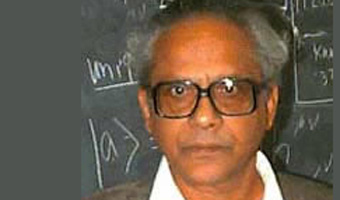The Mathematics Colloquium presents Dr. Samir Bose on “Early Indian Mathematics” on Tuesday, April 18, at 4:10 p.m. in Morton 115.

Dr. Samir Bose
Bose is Professor Emeritus of Physics at the University of Notre Dame.
Abstract: In this presentation, Professor Bose will review and appraise the contributions of early India to the development of mathematics beginning with arithmetic and ending with differential and integral calculus. The system of enumeration of natural numbers (positive integers) that we use today arose in India. Early advances in mathematics were followed by developments in trigonometry, which emerged out of the requirements of astronomy, eventually leading to Aryabhatta’s (476 CE) work on the sine function. After Bhaskaracharya (1114 CE), mathematical activity came to a halt in India with the exception of an absolutely remarkable development in an obscure and isolated part of the country. At the Kerala School of Mathematics, its founder, Madhava (1340 – 1425 CE), discovered the rules governing differential and integral calculus and used these to develop (among others) infinite power series expressions for sin θ and cos θ (in powers of θ) and one for inverse tangent function (in powers of x). These values would be rediscovered centuries later by Newton (1676 CE) and Gregory (1667 CE). Thus a program initiated by Aryabhatta almost a thousand years ago comes to a close. Mathematical activity ends with Sankara Varman of the Kerala School and the dark-age finally descends on India. Deliverance would arrive only after contact was reestablished with “modern” European mathematics at the end of the 19th Century.
















Comments